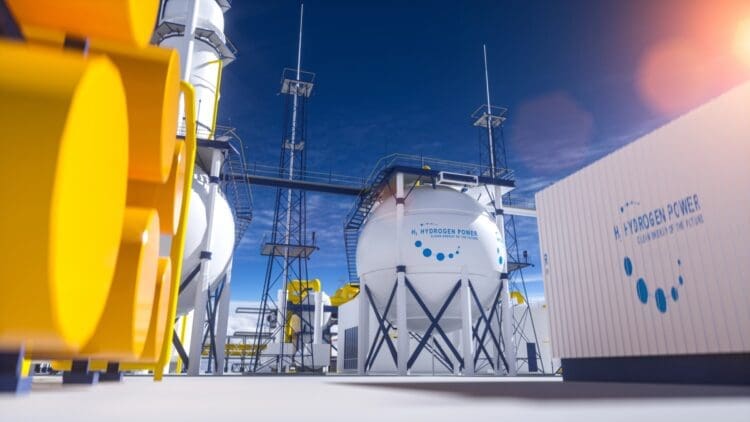Europe’s hydrogen energy sector has recently received a significant boost thanks to the EU Commission awarding funds for eight hydrogen initiatives under its NetZero Program. Europe is aiming to increase the standing and reputation of hydrogen across the region by allocating much-needed funds for substantial hydrogen projects across the EU bloc. The EU’s NetZero program is designed to assist the EU in reaching its clean energy goals by 2050, and enables the allocation of funds for projects that may help the region reach its lofty ambitions for clean energy production.
The European Commission has awarded billions to hydrogen and clean energy projects
The commission announced that it has awarded over $3.06 billion in funds for 61 large-scale climate tech projects, of which hydrogen is the main energy source. The funds are derived from the revenues generated under the EU Emissions Trading System, and follow the EU’s first-ever dedicated net-zero call (IF24). Applications for funds from clean energy projects totaled $22.9 billion, nearly ten times the amount planned to be allocated.
Hydrogen has long been overlooked as a potential long-term energy resource that could drive up renewable energy production as the world edges ever closer to the self-imposed 2030 clean energy target. Among the litany of projects that are set to receive funds from the EU Commission are:
- Spain: Luxia will produce green hydrogen for ammonia and methanol
- Denmark: Arcadia e-Fuels using hydrogen and biogenic CO₂ for eSAF and eNAP
- Czech Republic: H2CWay will develop hydrogen fuel cell buses
- Estonia: P2XH will produce e-methanol and green hydrogen for the maritime sector
- Italy: H2EAT will use the funds to construct hydrogen boilers
- Norway: ODIN will use the funds for retrofitting 15 Cessna 208Bs with H₂-electric powertrains
- Norway(again): RjukanLH2 will use the EU funds to validate RFNBO-compliant LH2 bunkering for shortsea vessels
The grant agreement phase for the EU funds is currently underway
The EU is hoping that the allocation of funds will boost domestic hydrogen projects across the European continent, especially as the latest sanctions on Russian energy supplies come into effect. The grant agreement phase has commenced, with the contract confirmation process set for 2026.
“The response to this call demonstrates the strength of our innovators and the determination of our companies to lead the global race for net zero technologies.” – Wopke Hoekstra, EU Commissioner for Climate, Net Zero and Clean Growth
The EU has noted that the grant process has been as smooth as a baby’s bottom, with no interruptions or issues facing the allocation of funds. Hydrogen has long been overlooked as a potential long-term energy resource that could completely alter the future of our planet. The EU has been on a hydrogen spree as of late, and has even granted renewable certification for a massive hydrogen project in China.
Europe’s proclivity for hydrogen is a welcome change to the conventional reliance on the fossil fuel sector, which has devastated the global environment, leading to disastrous climate change across the world. Luckily, nations have taken measures to reduce the impact of the energy sector.
The EU has backed several new hydrogen projects across the world
Hydrogen is the most abundant element in the universe, and a precursor for life at the molecular level; as such, it deserves attention, and more importantly, funding by the EU and other institutions. In that regard, the EU is backing a new Baltic Sea hydrogen project. Despite some nations across the world stagnating in their embrace of the renewable energy sector, such as the United States, hydrogen and its derivatives are set to become the dominant energy source over the next decade, especially with the substantial financial support of the EU Commission, and the world will be better off for it.








